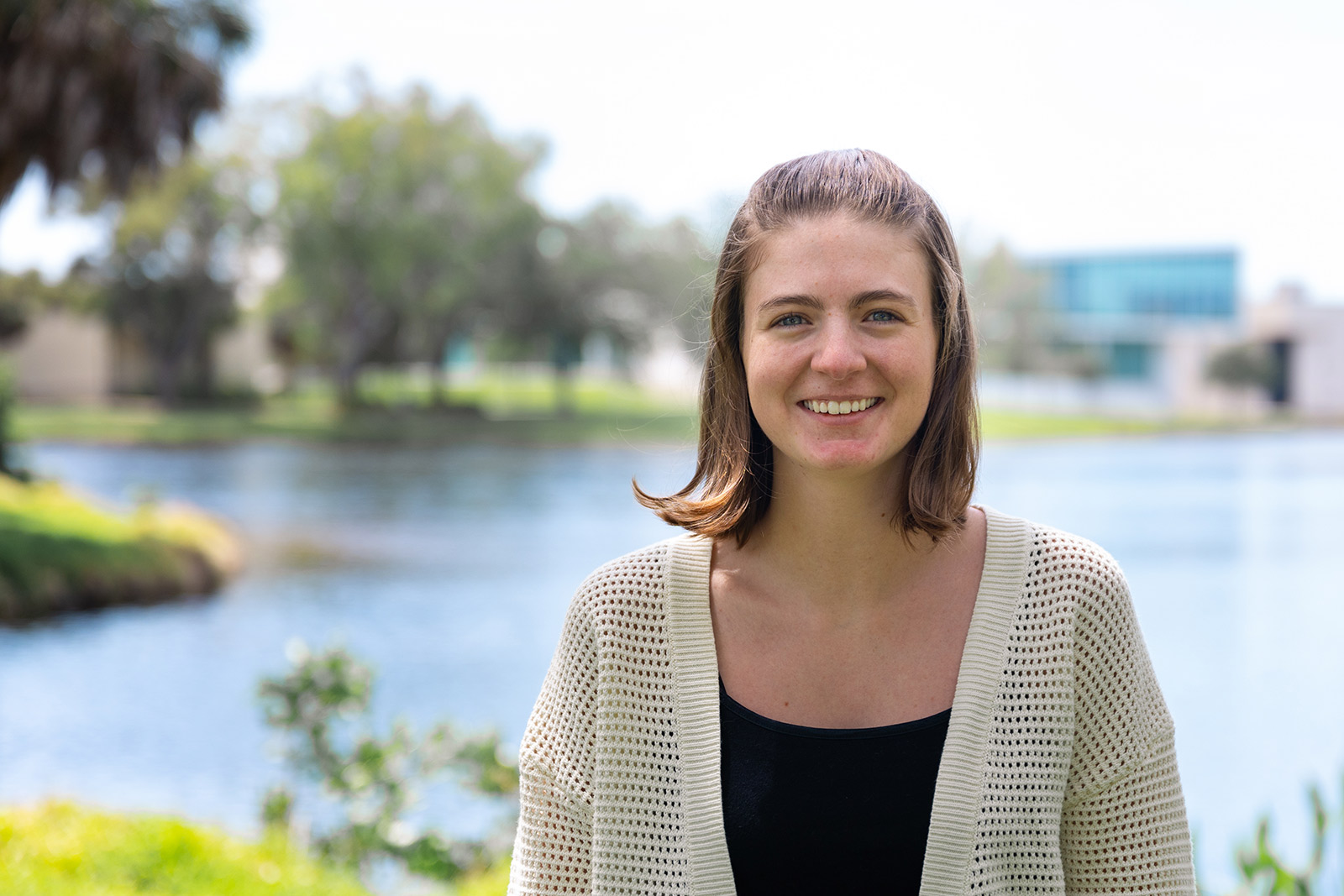“I thought there was no way I was going to get in,” recalls Eckerd College junior Julianna Kinser. “It was a one-in-a-million shot. But I hoped what would help was my interest in teaching, and in sharing what I know with underserved communities.”
She was right. It did.
Julianna, an economics and mathematics student from Brentwood, Tennessee, recently received a full scholarship to attend the American Economic Association’s annual Summer Training Program—an intensive, two-month residential program hosted by Howard University in partnership with the Women’s Institute for Science, Equity and Race, along with the Board of Governors of the Federal Reserve.
Two weeks after spring semester classes end on May 10, Julianna will be in Washington, D.C., to begin four graduate-level courses at Howard and work on her research with help from members of the Howard faculty and the Federal Reserve Board. Students receive training in microeconomics, math, econometrics and research methods.
“I found out about the program from Dr. [Kat] Robinson [Ph.D, assistant dean of faculty at Eckerd], and the more I read about it, the more intriguing it became,” Julianna explains. “Especially the focus on increasing the diversity within the field. That’s an admirable goal.
“We’ll get to work on a project of our own interest. For me, it’s how different factors are affecting consumer debt in the country. I think that’s a very pressing issue right now and the cause of a lot of financial problems. The average credit card holder has about $8,000 of debt. And that’s been steadily increasing. And then there’s student loan debt. A lot of graduates don’t have the ability to get the mortgage they want. Those are just two examples.
“There are a lot of different ways to look at this problem,” Julianna adds, “but it’s exciting research. We’ll have Federal Reserve Board members acting as mentors. My ultimate goal is to get a Ph.D. in economics and become a professor.”
Established in 1885, according to its website, the AEA is a nonprofit, nonpartisan, scholarly association “dedicated to the discussion and publication of economics research.”
Howard University’s website claims that since 1974, the AEA Summer Training Program and Scholarship Program have aimed to increase diversity in the field of economics by preparing undergraduates for doctoral programs in economics and related disciplines. As many as 20% of doctorate degrees in economics awarded to people from marginalized communities over the past 20 years belong to graduates of the programs.
“My grandparents had a huge influence on teaching me about the importance and impact of service to others,” Julianna says. “It was a huge part of my upbringing, and I have always been interested in finding ways where I can best use my skills to impact people positively.
“I came to Eckerd because I wanted to experience something new, and I was very excited to be in an environment where I could explore a lot of different interests. I’ve been working in the Peer Mentor Program since I was a sophomore, and I’ve gained a lot of experience that will help me if I become a professor in the future.”
Julianna also serves as president of Delta Sigma Pi, Eckerd’s coed business fraternity, and as a microeconomics tutor.
“I first met her in my Principles of Macroeconomics class,” says Peter Hammerschmidt, Ph.D., professor of economics at Eckerd and one of Julianna’s mentors. “She did very well, and I told her she should consider economics as her major. She did. And then later on, I was so impressed with her, I hired her to be a tutor. The day after her first day on the job, her students told me I should hire her full time. They were all raving about how helpful she was.
“I think Julianna will do just fine in Washington.”













